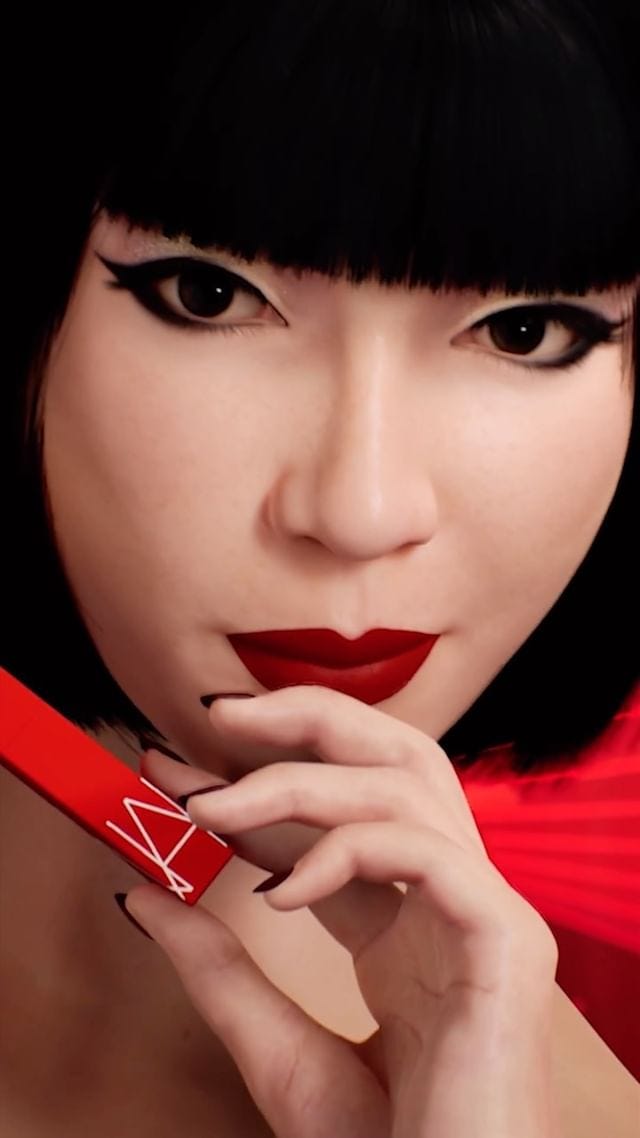By now, everyone who would have has downloaded an app with the specific intention of having it create vibrantly hot, bisexually-lit, Deviantart-looking AI portraits of themselves. It is fun to have yourself rendered hot and sexy by computer programs (and the horny nerds who wrote their coding). The computer will paint you like one of its French girls, and how. Smooth, shiny, features proportionally tweaked to peak alien-cute. They’re like a carnival caricature but hot, like seeing yourself in the bootleg Marvel Cinematic Universe as a cartoon playing card version of yourself. And all it costs is $4 and a modest selection of your metadata containing an alarmingly detailed cache of every feature of your face, plus generally the rights to use them however these nerds see fit.
It immediately reminded me of the 2019 Dazed cover that featured an AI-makeuped Kylie Jenner. It was a collaboration between real photography and something called Beauty_GAN, which binged all Jenner’s selfies, concocted an idea of what beauty means from them, and then co-created portraits of her as what it learned of her beauty to produce:
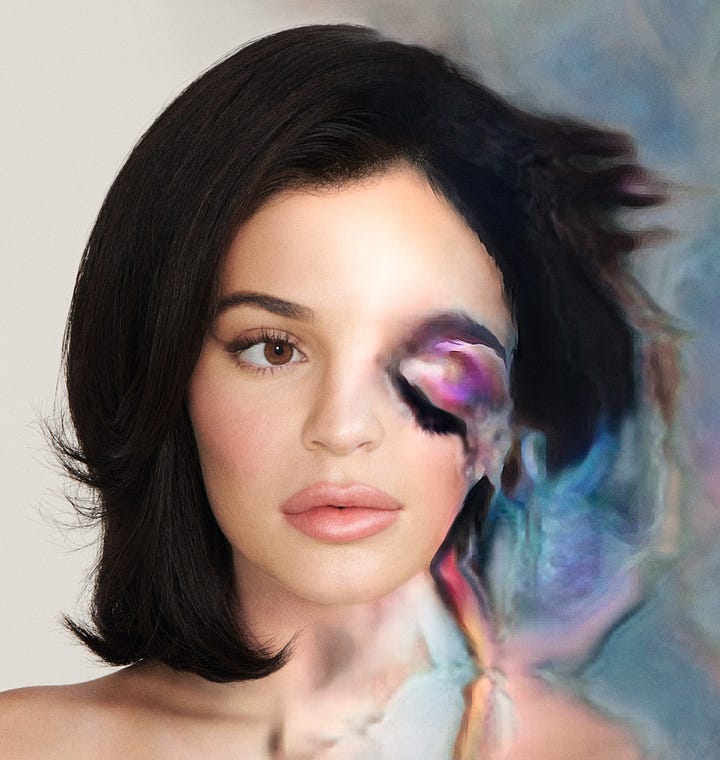
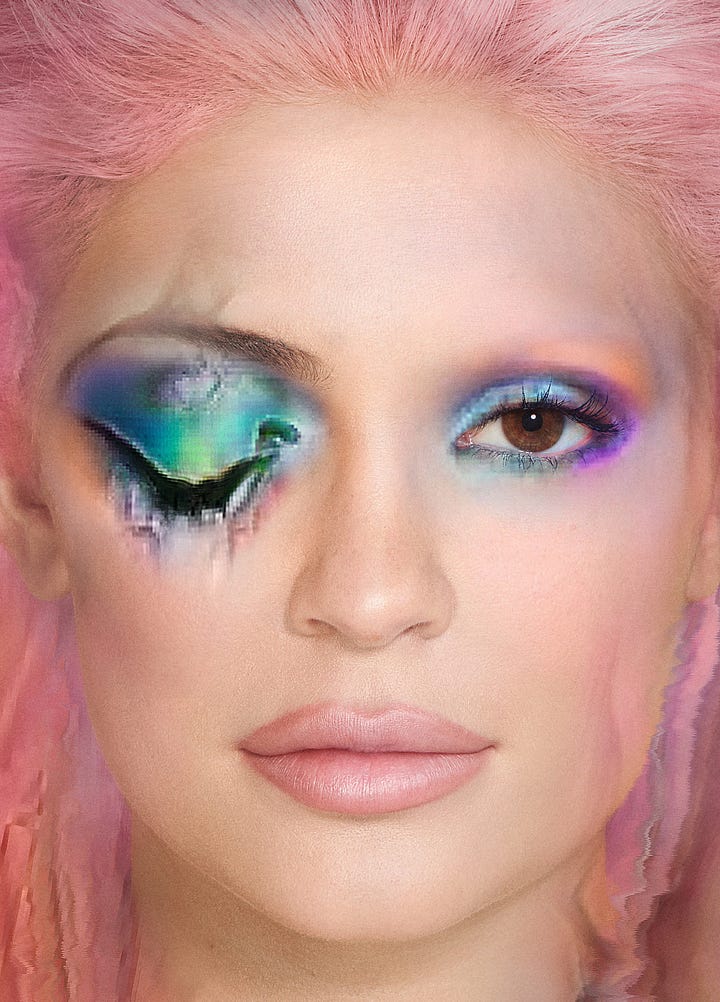
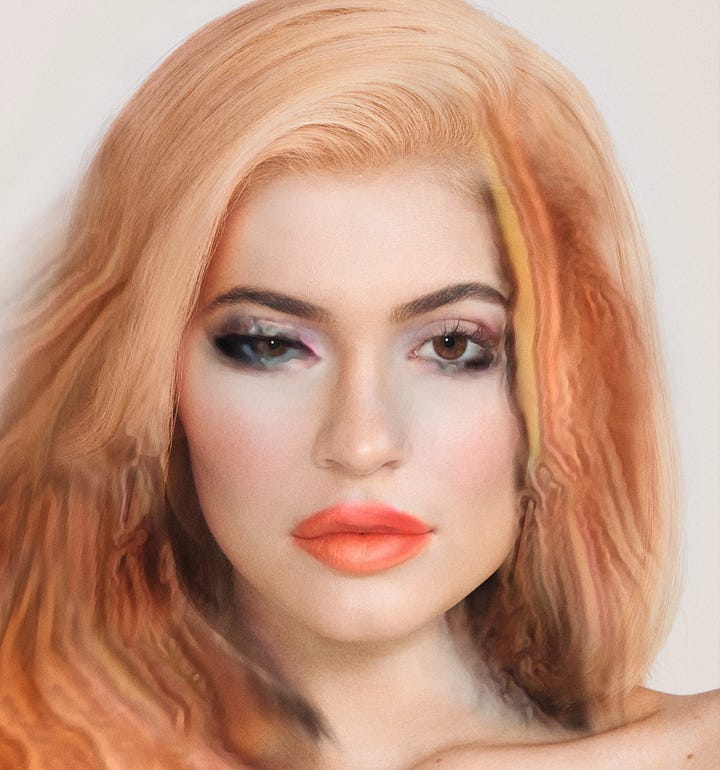
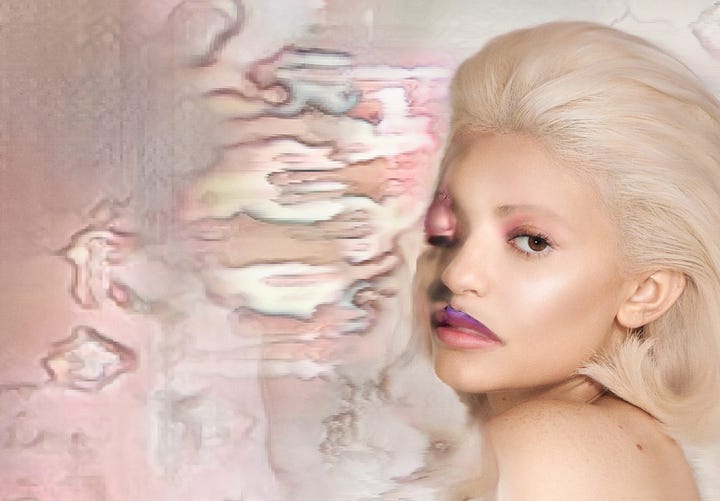
Today’s hottest currency is your data. It has everything: your interests, your habits, your insecurities, your obsessions, and the right time, place, and thing to trigger them all. And data is very easy to make — all you have to do is log on, have a personality, and engage, and suddenly you’ve produced a valuable set of data that gets sold to whoever wants to advertise to you. And a great lot of us don’t mind this (the “nothing to hide” mentality is meant to quell unease and reinforce the idea that surveillance is a protective measure, and it works).
One reliable way to collect our data is to tell us we’re pretty. Egos are gullible like that. Digital vanity is something borrowed and something new, born of our perpetual online-ness that I simultaneously find fascinating, as someone who has been supplied many a dopamine hit from it, and also very annoying as its benefits have been conflated with a fraught kind of economic and social success.
It gets written off as a form of frivolous narcissism, another behavioral side effect that social media breeds (like dread or anxiety), to which the common solution would be to just log off. But it’s a bit late for that now when a well-performed digital persona bears rewards for your analog lifestyle.
Remember when people were like “online isn’t real!” and then a bunch of kids unalived themselves from cyberbullying, people lost jobs from bad tweets or incriminating posts, and capitals were stormed? We barely treat online dating matches with the same basic etiquette we would a stranger met in person. We are so removed from the concept of online consequences, despite the offline consequences sometimes being heavily significant and sometimes life-altering.
That’s not to say that you as a space warrior fairy elven princess will have heavily significant, life-altering consequences. Not you alone or yet, anyway.
AI-rendered beauty is a mirror of a mirror, a reflection of how the tech we interact with daily sees us. It reminds me so much of the Chinese mirror myth — that our reflections are otherworldly creatures who learn to mimic us and eventually replace us. The more we optimize its feed by supplying it with our own images results in creating a meta-species of AI-rendered humans who then replace real humans to do the work that we do — which has already happened in many more mundane and less visible ways (the day my robot Google can correctly play the song I ask it to, and not a similar-sounding song title is the day I believe AI is capable of taking over).
Beauty is an easy target for AI because it focuses primarily on the superficial, which is (as far as AI knows) what beauty is. And the more we put a human face or gestures onto AI, the more we are drawn to it. I don’t believe people would care about AI so much if its human-mimicking tricks weren’t trotted out for flashy applications like: makeup brand NARS’s “metahumans” or Shudu, “the world’s first digital supermodel,” dubbed by her creators (white tech dudes) who profit from her sponsored content and ads that they broker with brands (almost like an agent but Shudu isn’t a client, so much as a digital puppet). And that’s not even getting to the Deepfake supply chain. You can do a lot with beauty on these superficial planes, but deeper meaning is found in how we connect to it, not just its reflection.
I don’t have very strong feelings about these Lensa AI portraits, themselves. Maybe I find them a bit corny, the way I find most Deviantart corny (I do prefer them to Memojis though). They don’t tell me anything I don’t already know, I guess — that a facsimile of beauty can be just as acceptable as the original, and to some, even preferable. But it’s not as clever as the attention it garners may suggest. It’s not even original, considering that these AI programs reproduce the artistic styles of real artists who have no recourse to protect their work against something as unregulated as coding. Is AI art even art? Or is it math? Depends on who you ask and how optimistic they are about… math.
Tech-based and algorithm-determined beauty may excite us as some alternative to the artifice of aesthetic treatments — another layer of removal from the unpredictable and ungraceful enterprise of mortality. The results are similar but one lacks the violence that beauty sometimes calls for in an uncooperative body. A digital image is painless, anesthetized beauty. Code is devoid of morals and requires no blood sacrifice. It’s beauty devoid of history and presence — an ‘after’ image with no ‘befores.’
It’s the future of beauty through the lens of silicon valley, which is not generally known for its grasp on artistic merit, let alone taste. You cannot be taking these dudes seriously.
Someone I met at a party the other week described beauty as “the harvesting of presence,” and the next day texted me this:
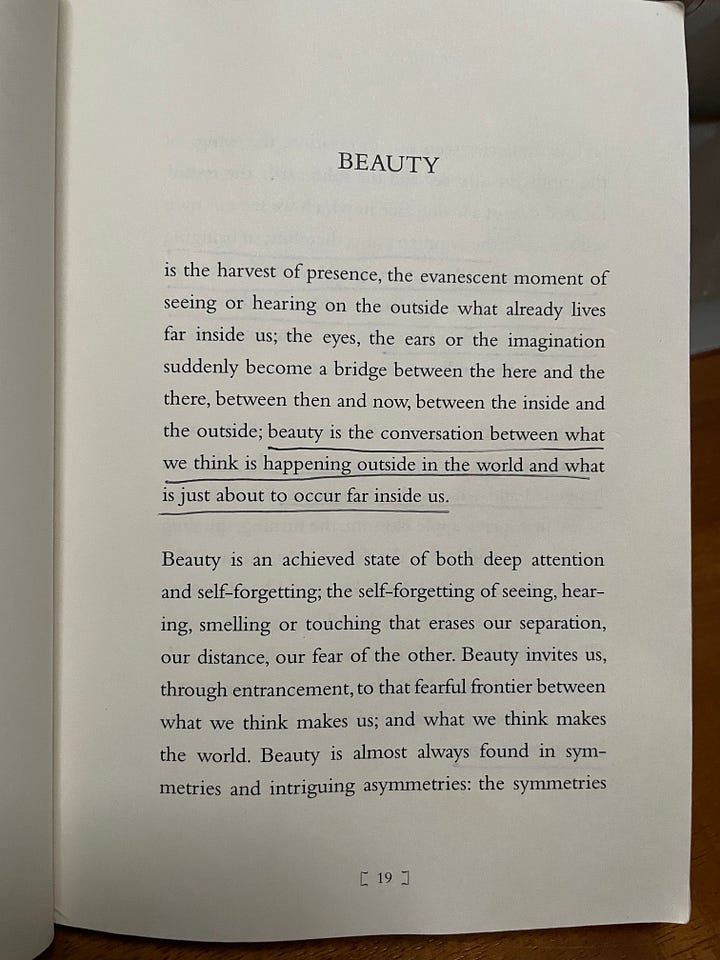
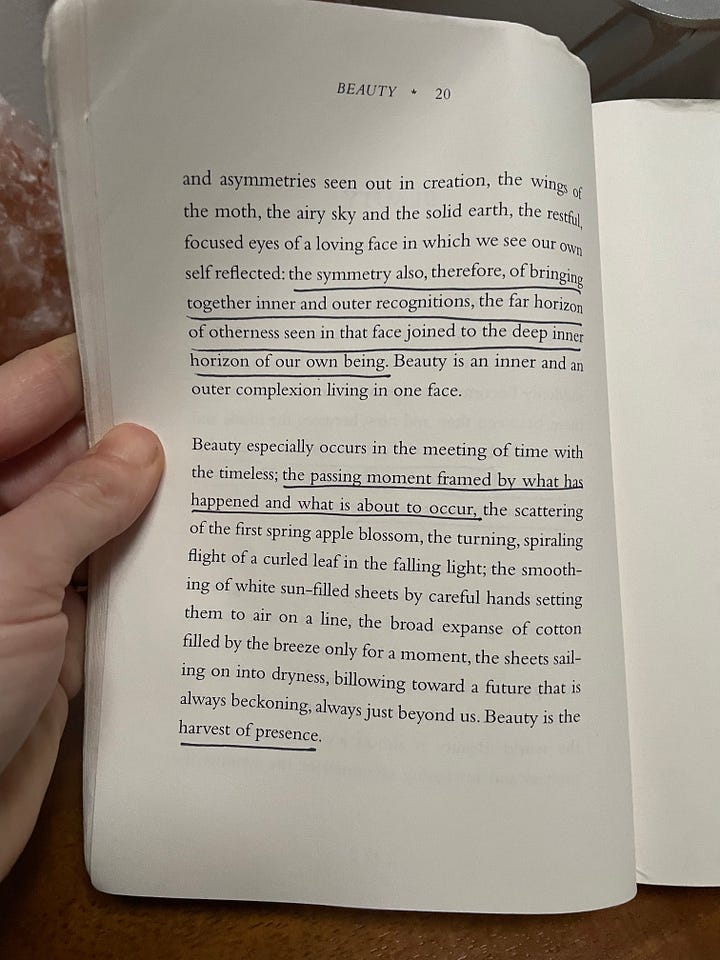
AI’s reinterpretation of our interpretations of beauty (filters and all) may compound our already suspicious takes on modern, optimized beauty, but it’s just a reflection of our most parochial views of beauty — ethnically watered-down, infantilized, airbrushed beauty — which is so much more limiting than what we supposedly think technology is meant to offer us. It’s a feedback loop we wrap around ourselves. There is comfort in the familiarity and menace in its faultless reproduction.
AI is efficient at serving us an amalgamation of our best beauty performances. I mean, that is generally what we feed it, after all: the same oppressive highlight reel of Instagram that we resent, perhaps naively thinking that an AI interpretation is somehow more optimistic. But it’s just doing its tasks with the resources its given.
Technology is a bit like a genie granting wishes with ironic results. But presence is something that, as far as I am aware, AI has yet to harvest.






